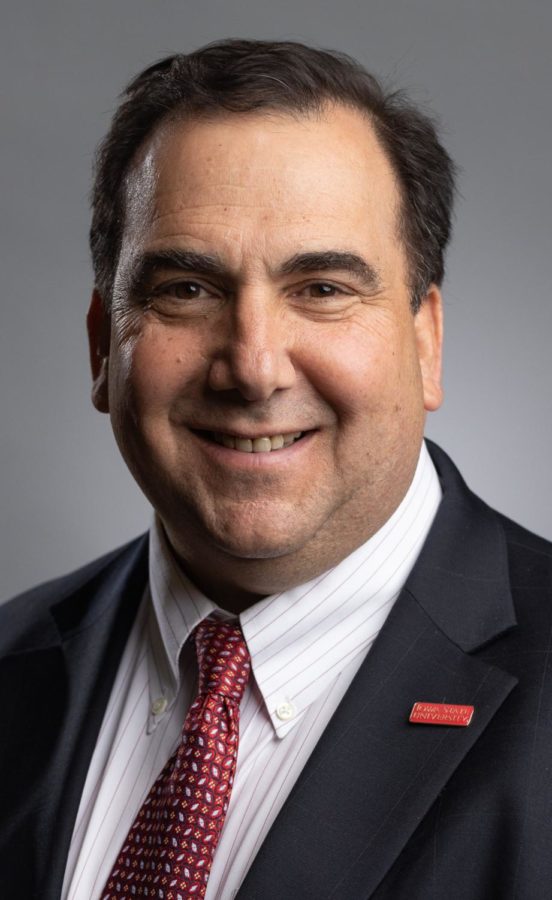College of Agriculture and Life Sciences dean reflects on goals, student success
Courtesy of College of Agriculture and Life Sciences
Daniel Robison, the 11th dean of Iowa State’s College of Agriculture and Life Sciences.
October 24, 2019
Daniel J. Robison, the 11th dean of Iowa State’s College of Agriculture and Life Sciences, has stepped into his new role with a positive start. Robison began his duties as the dean on Jan. 21.
“This is among one of the very finest colleges of agriculture and life sciences in the world,” Robison said. “It’s been so exciting for me to come here and to join the organization. People have been welcoming and gracious. It’s been a really easy transition.”
Each of Iowa State’s colleges has a dean, like Robison, in charge of maintaining the college. One of the dean’s biggest responsibilities is to manage the people within the college.
“The university is broken up into bits and pieces, and those include the colleges,” Robison said. “Part of that is to keep related topics together in ways that enable the people in those areas to best work with each other.”
Overseeing the College of Agriculture and Life Sciences is no small task — between faculty, students and budgets, Robison is busy assuring things go smoothly.
“We have 15 departments, 4,500 students, a couple hundred faculty [and] a couple hundred staff,” Robison said. “I have to keep track of all that and the budget that supports it all and the people who do the work.”
As the dean, Robison said he supervises and works with the employees within the College of Agriculture and Life Sciences. He makes sure students are getting a quality education by working closely with their educators.
“We need to make sure all the time that we are improving our curriculum, enabling our faculty to offer great courses — and that takes energy,” Robison said. “I work on that all the time with faculty chairs and department chairs.”
In addition to the faculty and staff, Robison emphasizes his effort in ensuring students have the best experience. He said he works to create opportunities for students to do more in and out of the classroom.
“One of my big goals is to make sure all students have the opportunity to do what we call ‘value added’ or ’high impact’ experiences,” Robison said. “So we want all of our students to have the opportunity to study abroad, we want all of our students to do an undergraduate research project, we want all of our students to have the opportunity to do service learning, to participate in all other kinds of activities, to join clubs.”
While these programs already exist for students, Robison said he wants to continue improving them. For instance, he has collaborated with staff to organize new ways for students to study outside the perimeters of Iowa State.
“We decided in the spring that we are going to launch the initiative that would have more opportunities to study around the U.S. as well as around the world — they are both important,” Robison said.
This opportunity for students to study in other states will be available in the spring 2020 semester. It will be similar to studying abroad in that students will have many choices as to where and when they travel.
With opportunities like these, students may be able to better engage with their education. Robison said he is invested in helping and watching students achieve their goals, whether it be at Iowa State or wherever their careers take them after graduation.
“[My] favorite part of the job is watching students be successful,” Robison said. “You see a student who is soaking up the information and enjoying the experience here at college and is learning and watching their career unfold before them — that’s the best part.”
Robison commended the students and staff of the College of Agriculture and Life Sciences by highlighting their goal-setting qualities.
“We are people of purpose, we have a meaning that goes beyond ourselves,” Robison said. “We want to have a positive influence on the landscapes and the communities around us. And that’s what makes this a special place.”

















